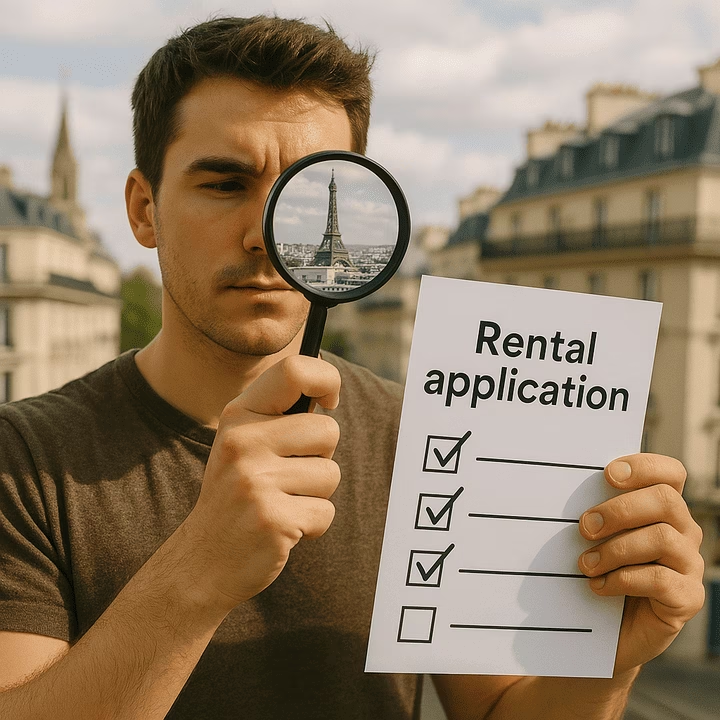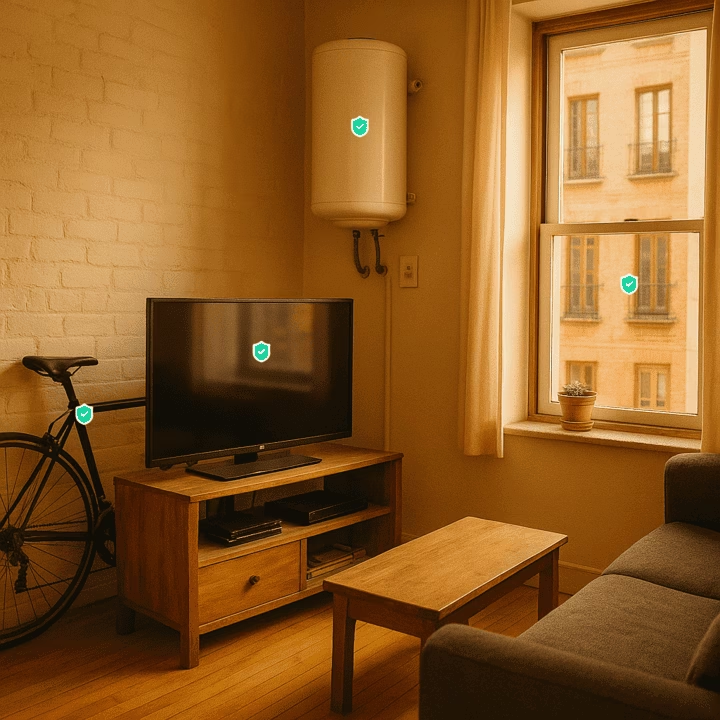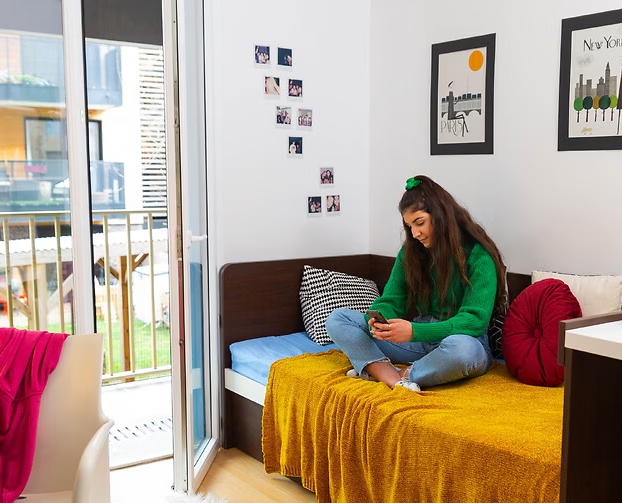🔎 Recap
We know you might not have time to read everything, but don't worry—we've got your back! Here's all the key info you need to know about guarantors in France:

Introduction
Ah, France—the land of croissants, the Eiffel Tower, and your next study destination! But before you settle into your dream apartment, there’s one crucial step: finding a guarantor. What exactly is a guarantor? Why do you need one? And how much does it cost?
Don’t worry—we’ve got you covered. In this guide, we’ll walk you through everything you need to know to secure a guarantor and successfully find housing in France. Ready? Let’s go! 😊
Understanding what a guarantor is and why you need one
What is a guarantor?
A guarantor, or "caution locative," acts as a safety net for your landlord. If you fail to pay your rent or other charges, the guarantor steps in to cover the costs. In France, presenting a guarantor is standard practice, especially for students or young professionals without strong financial credentials.
For students, having a guarantor is almost a given. Make sure you’re prepared, as it will be a key part of your rental application process.
Who can be your guarantor?
Your guarantor can be:
- A relative: Parents or legal guardians are often the first choice.
- An institution: Services like Visale, Garantme, SmartGarant or Cautioneo can stand in for a personal guarantor.
- A bank: Although less common, some banks offer guarantees in exchange for a deposit.
- Your employer: Some companies provide rental guarantees for their employees.
If you’re relying on a family member, they’ll usually need to live in France and demonstrate stable income.
Why do landlords require a guarantor?
Guarantors provide landlords with financial security, ensuring they’ll still receive rent payments even if the tenant defaults. This reduces the risk for landlords and spares them the hassle of chasing unpaid rent. It’s a standard practice in France, where the rental market is highly competitive.
Can you have more than one guarantor?
Yes, but most landlords prefer to deal with a single guarantor to simplify the process. If you present two guarantors, you’ll likely need to provide double the supporting documents.
Renting without a guarantor: is it possible?
Yes, but it’s not easy. Some landlords might accept alternatives, such as paying several months of rent in advance (sometimes up to six months), though this isn’t common.
Another option is to look at student residences or private accommodations, such as Twenty Campus, which are often more flexible and don’t always require a guarantor.
Finally, platforms like Airbnb or Spotahome offer furnished rentals without guarantors, but they tend to be more expensive and are better suited to short or mid-term stays 😉
Overcoming challenges as an international student
Understanding landlords’ expectations in France
Renting in France as an international student can quickly become an administrative challenge. French landlords, focused on financial security, typically require strong guarantees to ensure rent payments. Commonly requested documents include:
- Payslips or proof of stable income.
- Tax returns or financial statements.
The issue? These documents often need to be in French or conform to French standards. If your guarantor lives abroad, their paperwork might not meet these requirements. Translating these documents can be costly, time-consuming, and, in some cases, insufficient to convince a hesitant landlord.
Challenges for international tenants
- Language barriers: Documents in a foreign language are often rejected.
- Formatting differences: Payslips or tax returns from other countries may not match French norms.
Even if your family is willing to act as a guarantor, these obstacles can complicate your housing search. Fortunately, there are alternative solutions tailored to international students, like Visale (which is free!), Garantme, SmartGarant, or Cautioneo. Let’s explore these below 👇
Four options tailored to international students
Visale: Free government-backed rental guarantee
- What it is: A free guarantee for students, funded by the French government.
- Advantages: Easy to use, no cost, and widely accepted by landlords.
- Limitations: Available only in French and subject to specific criteria (e.g., rent caps and age limits).
Garantme: Designed for international students
- What it is: A paid service that guarantees your rental application.
- Advantages: Fast process (certificates issued within 24 hours), multilingual support, and trusted by landlords.
- Cost: Around 4.5% of the annual rent.
SmartGarant: A reliable alternative
- What it is: A competitive alternative to Garantme.
- Advantages: Bilingual customer support (French and English), with eligibility confirmed in just 3 minutes.
- Cost: Approximately 4.3% of the annual rent.
Cautioneo: A flexible and affordable option
- What it is: Another rental guarantor option, with a service designed for international students.
- Benefits: Special student offer, with monthly payment available, which is convenient for short stays.
- Price: From around €14.17 per month (discounted student rate).
Bank guarantees: Less common solutions
Some banks, like BNP Paribas or Crédit Agricole, offer to act as guarantors if you deposit a sum equivalent to several months of rent. While convenient, this option can be expensive and usually requires you to open a French bank account first.
Our complete guide to guarantors in France

How to apply for a guarantor
Steps to get started
- Find your housing: Secure the apartment or room you want.
- Choose your guarantor solution: Go for options like Visale or Garantme if you don’t have a personal guarantor.
- Prepare the required documents (see below).
- Submit your application: Either online for digital services or directly via your landlord for personal guarantors.
Required documents
You’ll typically need the same documents as for your rental application:
- Your ID or passport.
- A valid residence permit (if you’re not an EU citizen).
- Proof of enrollment at your university for the current academic year.
- Your bank details (a French IBAN is recommended).
- Proof of your guarantor’s address (e.g., a recent utility bill).
- Proof of your guarantor’s income (e.g., three recent payslips).
- Your guarantor’s ID (passport).
What landlords or agencies are not allowed to ask your guarantor for
- A medical certificate
- A criminal record
- Documents about their marital status
How Long It Takes to Get Your Rental Guarantee?
Services like Garantme provide a certificate within 24 hours, while Visale may take a few working days.
Conclusion
Securing a guarantor is an essential step to finding housing in France, but don’t worry—it’s far from impossible! With options like Visale, Garantme, SmartGarant and Cautioneo, the process is now simpler and more accessible than ever, even for international students.
These digital solutions take the stress out of the equation, so you can focus on what truly matters: settling into your new home and embracing your exciting adventure in France 😊










